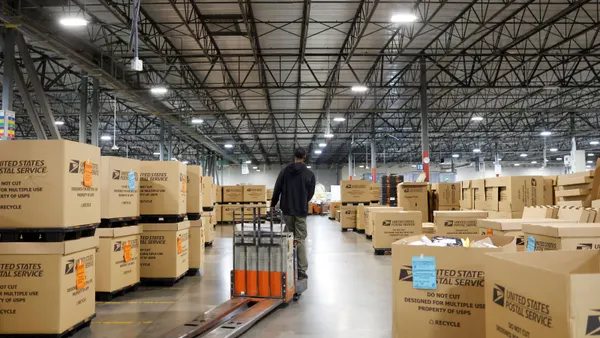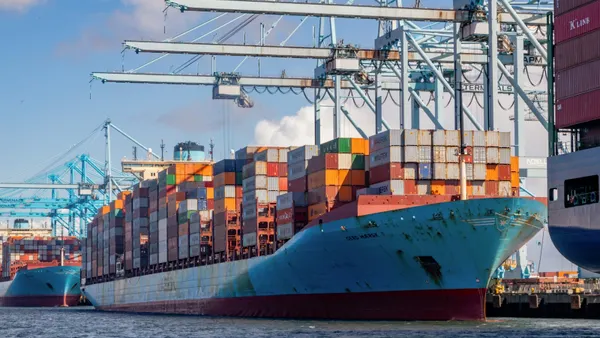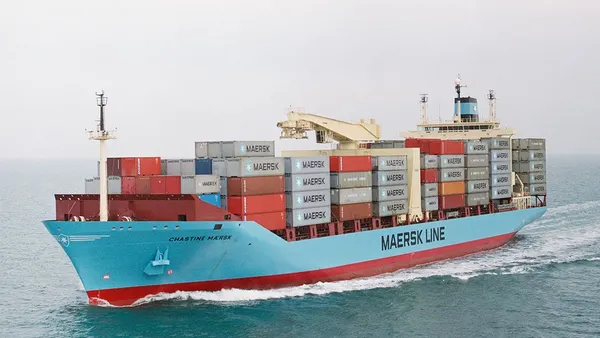Dive Brief:
- Freight forwarder Expeditors International saw the volume of ocean freight it moved in Q4 increase 19% YoY while airfreight was up 10% YoY, according to the company's earnings release.
- Supply and demand in the airfreight market were "severely out of alignment" during the quarter, which the company expects to continue "well into 2021," Expeditors CEO Jeffrey S. Musser said in a statement.
- The company also expects ocean freight rates to remain elevated until port congestion clears and demand for exports out of Asia subsides, Musser said in the release, noting a "significant marketplace imbalance" in the ocean business in Q4.
Dive Insight:
Expeditors' earnings release is the latest sign of a red-hot freight market that is working to move goods to restock retail inventories and fulfill consumer demand.
"We moved more freight in the fourth quarter of 2020 than in any other quarter in our history," Musser said in the release. "We set Company bests in airfreight tonnage and ocean containers shipped, as well as in revenue, operating income and net earnings."
Ocean rates between China/East Asia and the North American West Coast have continued to increase in recent weeks and are up nearly 192% YoY, according to Freightos. Air rates are also currently on an upswing after falling through January; rates between China and the U.S. have gone up 20% since Feb. 1 and are up 136% YoY, according to the TAC Index.
C.H. Robinson reported similar success in its earnings call last month, noting that increased profit was the result of improved pricing power.
"Eventually that balance of supply and demand will come back into more normal cadences in both air and ocean,"C.H. Robinson CEO Bob Biesterfeld said on the earnings call. "And so, as that happens, we do anticipate that our adjusted gross profit per shipment could come down from some of the historical highs that we've experienced in different quarters in 2020."
The elevated demand for freight has driven carriers and forwarders' to make space for shippers and capitalize on the lucrative market. In the case of CMA CGM, this meant standing up an airfreight operation, CMA CGM Air Cargo. CMA CGM CEO Rodolphe Saadé said the new option was the result of "growing demand" from customers, according to an emailed press release.
Meanwhile, Geodis began operating its own charter vessel in an attempt to gain more capacity in the market.
"We understand the current market challenges resulting from unprecedented customer demand and the limitations of ocean carrier capacity and sailings from China and other parts of Asia," Geodis Senior Vice President Global Ocean Freight Matthias Hansen said in a statement last week. "We are working hard to find solutions for our customers."
As companies come up with solutions to meet the current demand in the market, Expeditors expects the freight environment will eventually return to normal.
"While we are unable to predict how ongoing disruptions related to COVID-19 will affect our future operations or financial results going forward, we do not expect these unprecedented operating conditions to persist long-term," Expeditors CFO Bradley S. Powell said in a statement.
The National Retail Federation has suggested high levels of imports could continue through at least the first half of 2021. Others think it could go even longer.
"I expect we will see demand for transportation significantly above supply until Q4 of 2021," Martin Holme, the global head of lead logistics at A.P. Moller-Maersk, said in a LinkedIn post, noting that capacity constraints will limit companies' ability to restock to desired levels until then.












